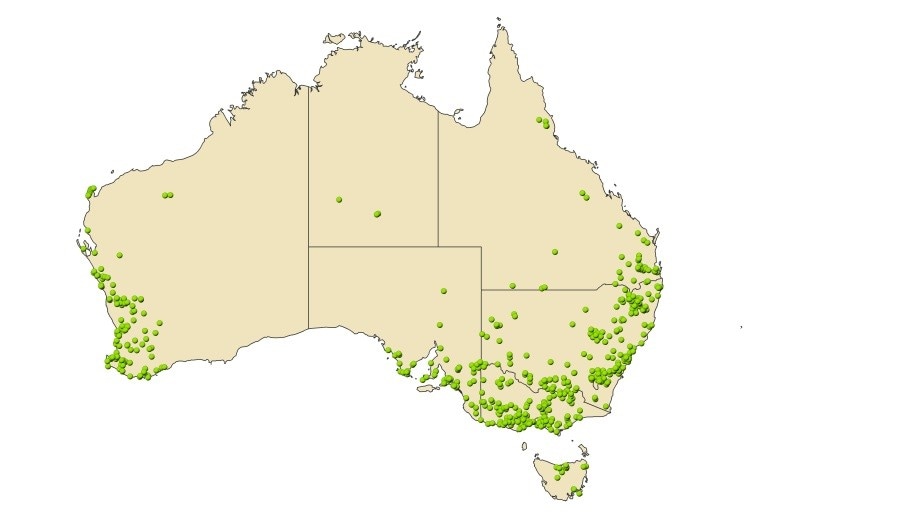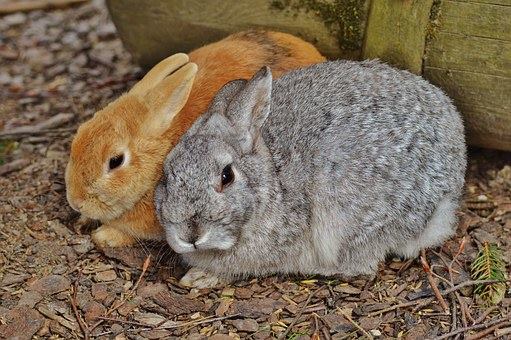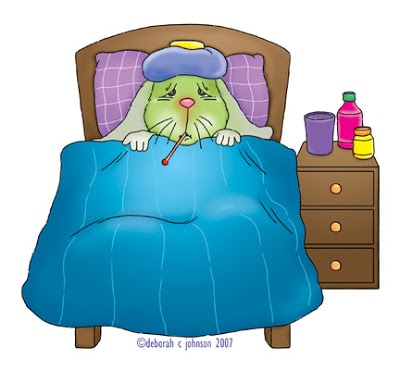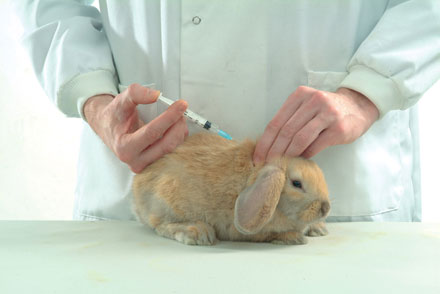In Alice Springs, we are warning clients regarding the release of RHDV1 – K2, a new strain of rabbit calicivirus which is due to be released as a form of feral rabbit control throughout Australia in early March. There will be five sites around Alice Springs where it will be released. We are urging rabbit owners of Alice Springs to vaccinate their rabbits to reduce the risk of infection and death.
Currently for the first week of March, our clinic in Alice Springs is holding a vaccination amnesty where we are offering highly reduced rates for this vaccination.
Currently for the first week of March, our clinic in Alice Springs is holding a vaccination amnesty where we are offering highly reduced rates for this vaccination.
| What is RHD / Calicivirus? Viral Haemorrhagic Disease of rabbits, also known as Rabbit Haemorrhagic Disease (RHD) or Rabbit Calicivirus Disease (RCD) is a viral disease that affects rabbits only. RHDV was first identified in captive domestic rabbits in China in 1984, and subsequently spread throughout Asia, Africa, and Europe. In Australia in 1996, it was introduced as a natural form of rabbit control. It has been very effective in reducing populations, particularly in the first release. New strains are released regularly to control wild populations of rabbits. In Australia, the majority of infections are from RHDV1. A new highly fatal strain of RHDV2 was recently discovered in Australia, but it has not been seen in Alice Springs yet. The Korean variant of RHDV1 is going to be released in March which whilst it is highly fatal, has been shown to be a preventable disease with vaccination. |
How is RHD / Calicivirus transmitted?
RHDV is easily transmitted by direct contact with faeces, aerosols and secretions from infected rabbits. More importantly, whatever these secretions contaminate, it can easily aid in spread. So the virus can spread on clothing, cages and shoes. It can be found on grass cuttings, even flies can spread it.
RHDV is easily transmitted by direct contact with faeces, aerosols and secretions from infected rabbits. More importantly, whatever these secretions contaminate, it can easily aid in spread. So the virus can spread on clothing, cages and shoes. It can be found on grass cuttings, even flies can spread it.
| What can I do to prevent the spread?
|
| What are the signs of this disease? The disease causes high mortality with death occurring suddenly in most instances. Animals of all ages can become infected, but the most serious infections are animals older than 5 to 7 weeks of age where there is the high likelihood of sudden death with no prior clinical signs. If signs are seen, it can include being off food, depressed, constipated or having diarrhoea. Some animals will progress to having weakness or seizures. If my rabbit survives, will he/she still be contagious? Rabbits that survive this disease may shed virus for 4 or more weeks after infection. Your rabbit should be considered contagious for all of this time if confirmed or suspected having this disease. However, please note that if the symptoms are severe, euthanasia is recommended. |
What happens if my place becomes contaminated?
If an infected rabbit was housed in your place, it is important to remove the infected rabbit, disinfect the premises with 10% bleach or F10 disinfectant.
If an infected rabbit was housed in your place, it is important to remove the infected rabbit, disinfect the premises with 10% bleach or F10 disinfectant.
| Can I vaccinate my rabbit for this disease? Thankfully we have a vaccine that is effective for this disease. It is effective for the RHDV1 strains, but may have limited protection for the RHDV2 which currently is not in Alice Springs. The recommended vaccine schedule has changed which is different to what the manufacturers of the vaccine had set. For young rabbits, we now recommend vaccination at 4, 8 and 12 weeks of age and then every 6 months. For older rabbits, we recommend 2 vaccinations 1 month apart and then every 6 months. |
Dr Alex Burleigh
Dr Alex Burleigh is based in Katherine, NT at Katherine Veterinary Clinic, part of Northern Territory Veterinary Services. He is a part owner and one of the senior veterinarians at both Katherine Veterinary Clinic and Alice Veterinary Centre. Dr Alex Burleigh is a published author with works appearing in veterinary texts, scientific journals and online websites. He consults regularly at both practices.






 RSS Feed
RSS Feed